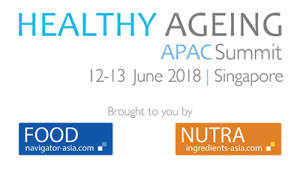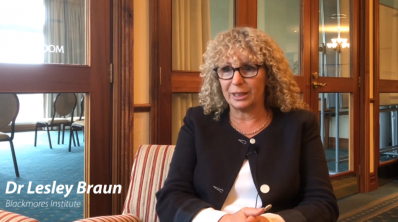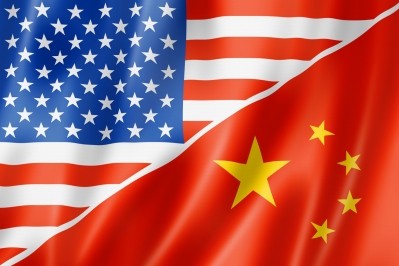Here comes the 'sunrise': Why ASEAN will be global boom region for supplements and nutrition products

The report was written by Australia's Commonwealth Scientific and Industrial Research Organisation (CSIRO), and focuses on the 10 member states of ASEAN — Brunei, Cambodia, Indonesia, Laos, Malaysia, Myanmar, the Philippines, Singapore, Thailand, and Vietnam.
It points out that ASEAN had the world's third largest population in 2016, and is set to become the equivalent of the world's fourth largest economy by 2030, with economic growth rates outpacing the global average.
The greatest demand for high-value nutrition products, according to the report, is likely to come from markets with rapidly expanding middle classes.
Indonesia's middle class is projected to become the world's eighth largest by 2020, and the fourth largest by 2030. The Philippines, Vietnam, and Thailand are also expected to see their middle classes increase considerably by 2030.
At the same time, countries such as Singapore and Vietnam face an ageing population and a growing chronic disease burden.
"While the production of high-value nutrition products within ASEAN is still in a nascent stage despite high demand, there are a few potential hubs," the report states.
"Thailand is a regional leader in organic agriculture, with sales of organic food growing 7% annually between 2010 and 2014. Regarding high-tech 'functional foods', Singapore's Clinical Nutrition Research Centre, established in 2014, could make Singapore a hub for nutrition research and commercialisation within the region.
"Finally, given the region's high demand, there is scope for ASEAN firms in the high-value nutrition sector to partner with established research expertise — for instance, CSIRO's food innovation centre helps manufacturers create value-added food products."
Disease and scandal
Furthermore, a greater prevalence of chronic disease, as well as food safety scandals, have opened up more opportunities for high-value nutrition firms across the broader APAC region.
Chronic disease is responsible for about 80% of all deaths in China (where the world's biggest overweight population live), and about 50% in Thailand.
With nearly half the world's diabetics living in China or India and type 2 diabetes predicted to increase by more than 150% between 2000 and 2035, APAC consumers have become more health conscious: according to the report, 93% of APAC consumers are willing to spend more on health foods.
When it came to food safety, the report says the first nine months of 2016 alone saw 500,000 violations in China, adding: "Consumers are willing to pay for assurance around food safety. Research has found that Chinese milk products with quality management certification sold at a price premium of around 5%, relative to regular milk products."
Organic growth
At the same time, the region is witnessing an increasing demand for organic foods, which has led governments in ASEAN countries such as Thailand and the Philippines to introduce organic labels or implement organic farming policies.
In fact, the ASEAN Standard for Organic Agriculture was recently developed; the report suggested that harmonising such policies across the region could propel the ASEAN organic agriculture sector.
APAC has the world's highest percentage of consumers seeking more organic product options (51%, compared to the global 44%), and they are more likely to rate fair-trade or sustainably sourced ingredients as important when making buying decisions.
The report says: "The region's share of global health and wellness sales from 2002 to 2018 is projected to increase from 20% to 31%. The Asia Pacific nutraceutical market, specifically, is forecast to grow at a compound annual growth rate of 7% from 2014 to 2019."
Elderly demand
There is also the issue of APAC's ageing populations: in ASEAN alone, 6.6% of the population was over 65 in 2017. This is expected to rise to 7.8% by 2020.
The region's average life expectancy also rose from 63.5 years in 2007 to 72.8 years in 2015. Greater life expectancy will in turn mean greater demand for products catered to seniors.
The report notes that ageing populations are one of the main drivers behind the shift in ASEAN's disease burden from communicable to non-communicable.
"Between 1990 and 2010, coronary artery disease rates in Asia Pacific increased by 76%, lung cancer by 86%, and diabetes by 76%. In 2010, overweight and obesity accounted for 3.4 million deaths, 3.9% of years of life lost, and 3.8% of disability-adjusted life-years worldwide."
Preventative solutions
This, alongside higher drug development costs, has seen healthcare expenditure rise by 250% between 1998 and 2010. However, as hospital infrastructure in APAC is still lacking, there is rising demand for preventative solutions.
Supplements designed to support cognitive health and joint health, and promote general anti-ageing benefits, have been launched in the region, and remain the biggest category in terms of healthy ageing products.
Furthermore, personalised nutrition has been gaining traction in APAC, with firms offering DNA testing to seniors in order to create tailored nutrition programmes for them.
Australian supplement firms have also been doing well in Asia, especially in China. The latter's ageing population is helping to drive further Chinese investment in the Australian healthcare and supplement sectors, where A$1.58bn was invested last year.
Healthy Ageing APAC Summit 2018: Our next event will assess how the food and nutrition industry can meet the needs of APAC's rapidly-ageing populations of today and tomorrow. The event, in Singapore on 12 and 13 June, will bring together policymakers, academics and industry experts from the likes of Nestlé, Blackmores, Swisse and Japanese 'engay' food pioneers Nutri co. Find out more here.













